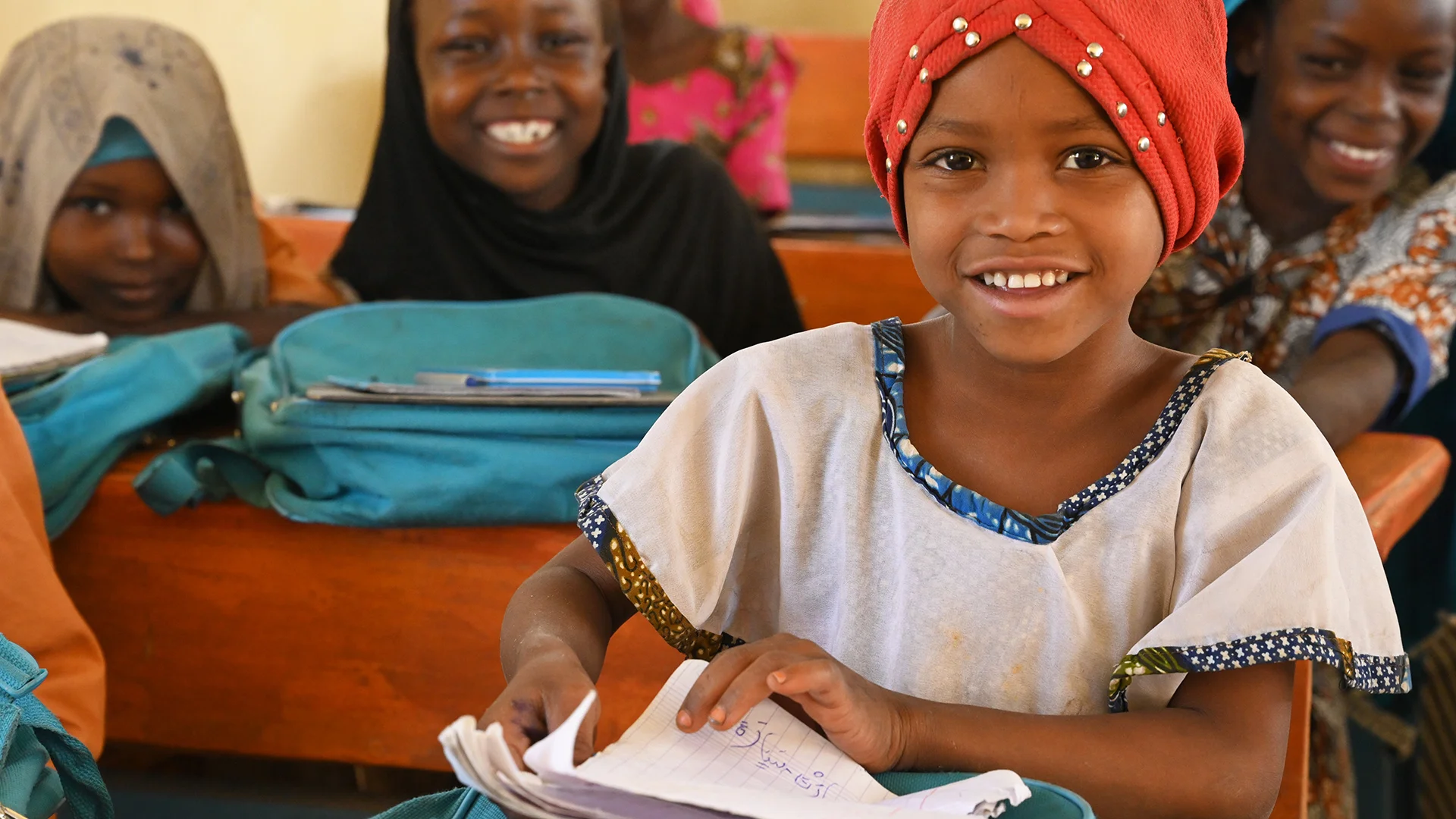Access to primary education is a fundamental right for every child. Yet 58 million children of primary school age worldwide do not attend school. In rural areas especially, teachers are often poorly qualified, schools are overcrowded and poorly equipped, and children have to travel long distances to school.
The situation
Education is the key to economic and social development. That is why developing countries in particular need well-educated people: education gives children the chance to take their lives into their own hands and escape the vicious cycle of poverty.
Over the past two decades, the number of children not attending primary school has been reduced by 40 percent. However, there is still a long way to go: 58 million children of primary school age still do not attend school. More than half of these, 54 percent, are girls. In addition, many children lack basic literacy and numeracy skills.
In many regions, one teacher often teaches several classes at once. In rural areas especially, class sizes of 200 children are not uncommon. Poorly equipped classrooms and a lack of school supplies also have a negative impact on the quality of teaching.
Patchy, poor teaching
In addition, the spread of HIV/AIDS is taking its toll on society. Countries in southern Africa, where many young people including numerous primary school teachers are affected by the disease, are particularly hard hit. The proportion of cancelled classes is correspondingly high, whether due to illness or because teachers have to care for relatives. Irregular lessons and unsatisfactory quality often mean that children’s help in the fields at home is considered to be more important, and many children drop out of school early.
How UNICEF helps
UNICEF has implemented comprehensive programs to ensure that every child receives an education, regardless of where and under what conditions they grow up, and that schools meet children’s rights and needs.
- UNICEF is committed to ensuring that schools are well equipped and use modern teaching methods that are relevant to children’s everyday lives and actively involve them. UNICEF provides building materials for additional classrooms and school wells, in addition to desks, benches, blackboards and school supplies.
- UNICEF trains teachers, parents and representatives of local groups and helps them to work together to promote education: examples include teachers making home visits to families whose children do not attend school, or committed parents planting trees in the schoolyard to protect children from the blazing sun.
- UNICEF lobbies education authorities to include important content such as hygiene and protection against diseases like HIV/AIDS in the curriculum.
- UNICEF advocates for girls to receive equal treatment in the classroom and in textbooks.
You can help too.
UNICEF implements the child-friendly school strategy throughout its global education program work. Your donation supports the Children’s Fund in this foundational work. We thank you from the bottom of our hearts for your support.
